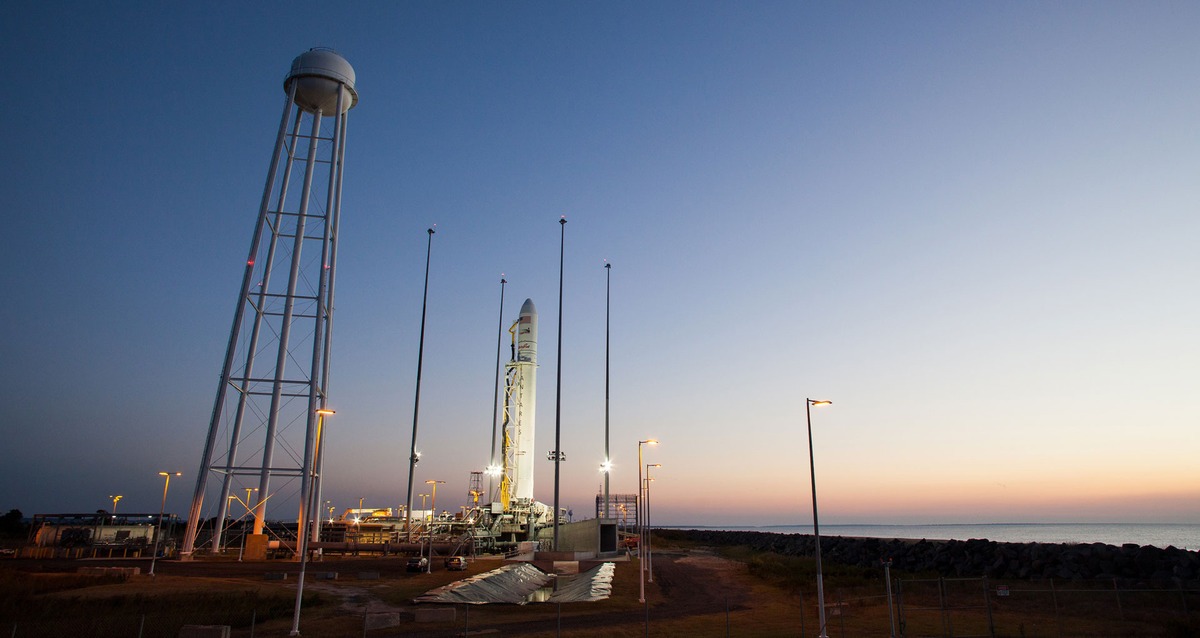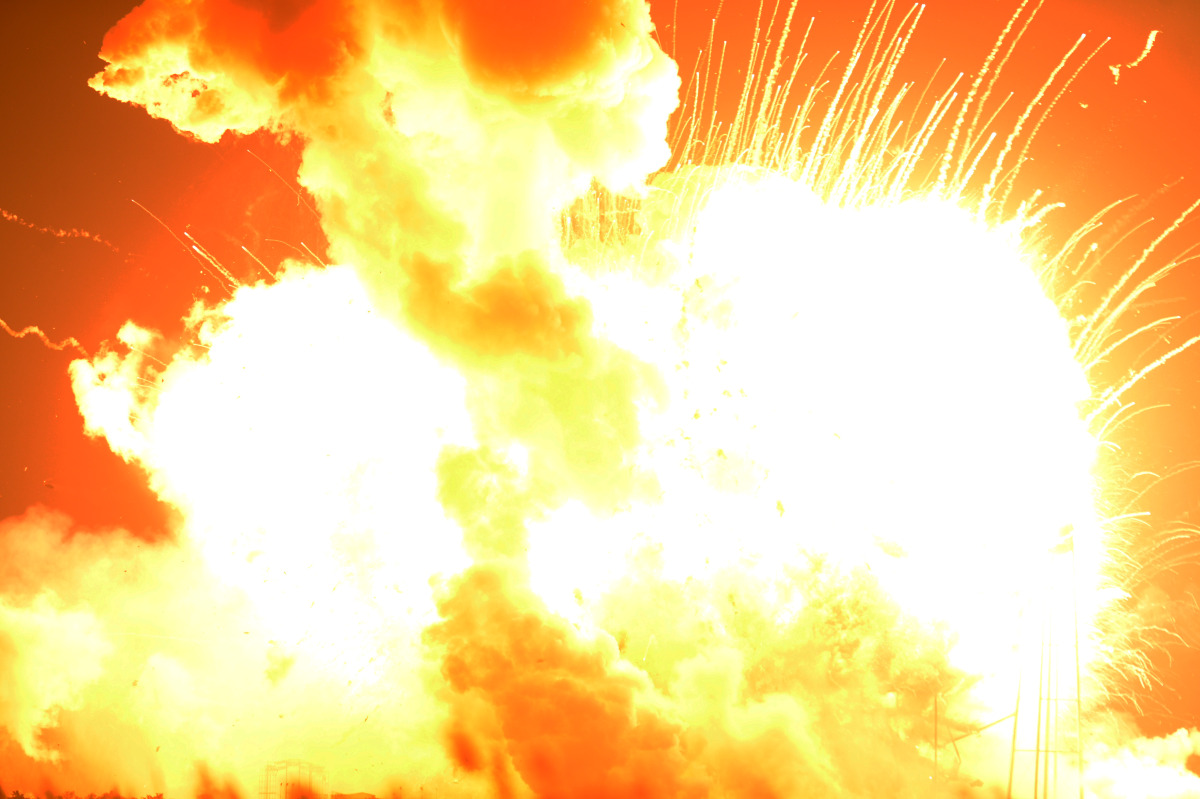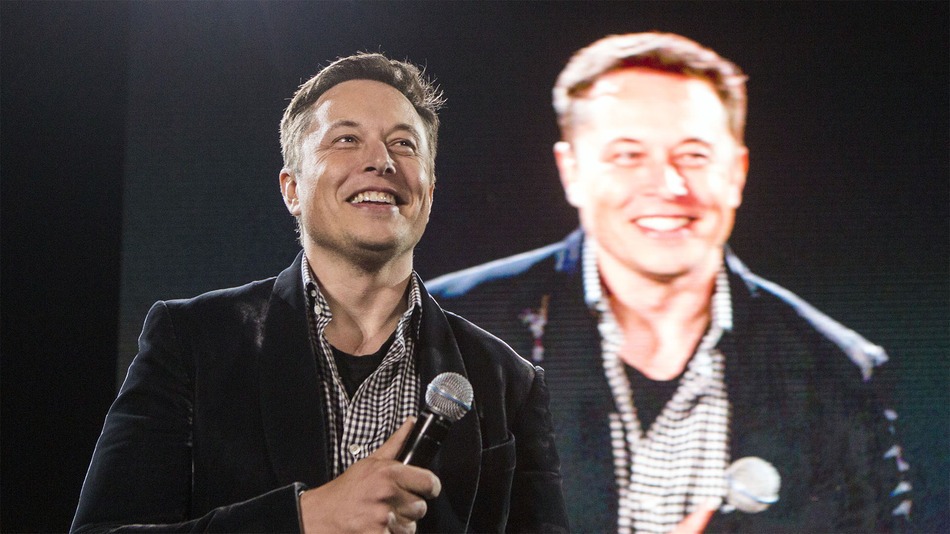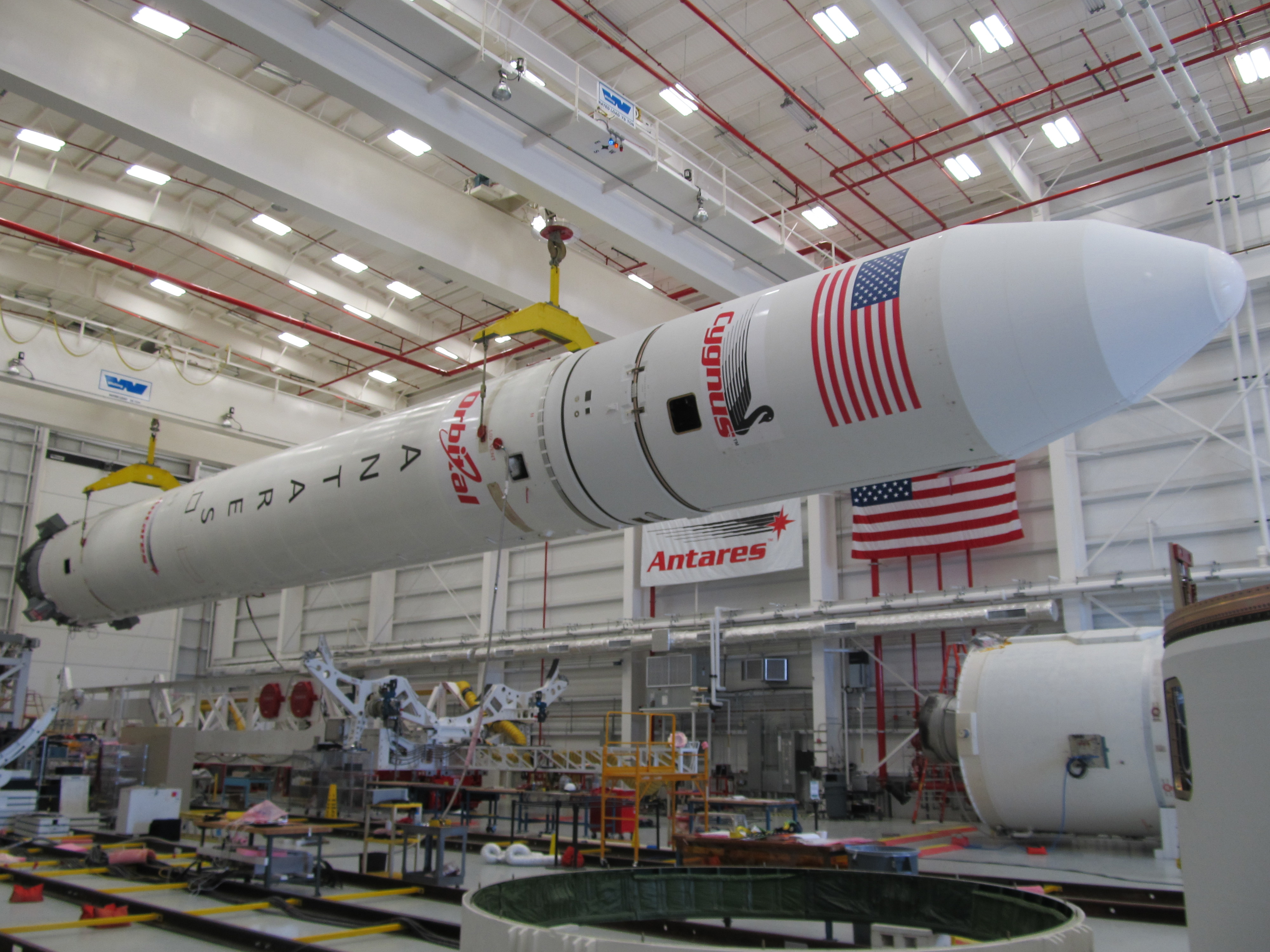NASA's Rocket Exploded. Here's What Elon Musk Said About It 2 Years Ago
The rocket was carrying 2.5 tons of food and other cargo to resupply the International Space Station. Meanwhile, NASA and Orbital Sciences urged observers—especially US lawmakers—not to over-react to the accident.
On Tuesday evening, 28 October, the Antares rocket, a private, unmanned spacecraft operated by Orbital Sciences under NASA, suffered a catastrophic failure when it exploded just six seconds after launch from NASA's Wallops Flight Facility, Virginia
An unmanned rocket that was to resupply the International Space Station blew up Tuesday evening a few seconds after liftoff from Wallops Island, Va. The Orbital Sciences rocket rose a short distance from the launch pad and then exploded in a ball of orange flames. Orbital Sciences is a private company based in Dulles, Va.
washingtonpost.comThe rocket was carrying a Cygnus spacecraft that was supposed to deliver supplies to the International Space Station on a routine mission. One-third of that cargo was made up of science experiments.
The Cygnus spacecraft was loaded with 5,000 pounds of cargo that included science experiments, food, clothing and other equipment for the astronauts on the ISS. It was set to rendezvous with the space station on Nov. 2.
The exact cause of the explosion is still unknown. However, the Orbital Sciences team wasn't tracking any issues prior to launch. "There was no indicated loss of life," a NASA spokesman said.
According to NASA, the Orbital Sciences Corp.'s Antares rocket and Cygnus cargo spacecraft were set to launch at 6:22 p.m. ET from the Wallops Flight Facility along the Atlantic Ocean.
cnn.com"There was failure on launch," NASA spokesman Jay Bolden said. "There was no indicated loss of life." Bolden added, "There was significant property and vehicle damage. Mission control is trying to assess what went wrong."
cnn.comAt liftoff, rockets are filled with highly volatile fuel. Officials said that the rocket’s first stage contained kerosene and liquid oxygen. They said it appeared that most of the kerosene had burned.
washingtonpost.comIn addition, it was emphasized at the news conference that a mission such as Tuesday’s entails inherent risk because of the chemical energy contained in the rocket fuel. However, officials reiterated that any specific determination of what went wrong would take time.
washingtonpost.comOrbital Sciences said they will conduct a thorough investigation starting immediately, including of the debris that was scattered around the area during the explosion, Mashable reported
The Antares rocket sits on the NASA Wallops Facility launchpad in Virginia prior to launch.
Image via mshcdn.com"It is far too early to know the details of what happened,” said Frank Culbertson, Orbital’s executive vice president in a statement. “As we begin to gather information, our primary concern lies with the ongoing safety and security of those involved in our response and recovery operations."
Will this explosion affect Orbital Sciences as a continued player in the competition to supply the ISS?
An unmanned Orbital Sciences Corp.'s Antares rocket explodes shortly after takeoff at Wallops Flight Facility on Wallops Island, Va. on Oct. 28, 2014.
Image via wordpress.comIt was in 2008 that Orbital (which has a long history in the space biz) and Elon Musk’s SpaceX (which had none at all) won a $3.5 billion NASA contract, with Orbital taking $1.9 billion of that for eight flights. Halfway through the contract, the company was looking to re-up, and this will not reflect well on them at the bargaining table.
Orbital was never a serious part of the even more furious competition to take over the manned portion of NASA’s low Earth orbit portfolio. The winners of that battle, named Sept. 16, were SpaceX again, and Boeing—a venerable part of the NASA family and prime contractor of the ISS. Tonight’s explosion would be a lot more worrisome if one of those two—already gearing up to carry people—had been responsible. But for Orbital, it will be bad enough.
Orbital is supposed to be a senior member of the space community, not one of the freshmen like SpaceX or Richard Branson’s Virgin Galactic. No exploding rocket is good—especially when contracts are ending and NASA is again looking for free agents. It’s much worse for an outfit that’s been in the game for a while. Final determination of how bad the damage is will await the investigation into the cause of the explosion. But one thing’s certain: you wouldn’t want to be on the company’s Vienna, Va. campus tonight—on what is surely going to be the first of a lot of very long nights to come.
So, what did Elon Musk say about the Antares rocket in 2012?
Elon Musk, CEO of Tesla Motors Inc., announces its new Tesla "D", a new all-wheel-drive version of the Tesla Model S car in Hawthorne, Calif., Thursday, Oct. 9, 2014.
Image via mshcdn.comElon Musk, the CEO of SpaceX, had trashed Orbital Sciences, the company behind the rocket, for using outdated Russian engines during a 2012 Wired interview. He said:
"their rocket honestly sounds like the punch line to a joke. It uses Russian rocket engines that were made in the ’60s. I don’t mean their design is from the ’60s—I mean they start with engines that were literally made in the ’60s and, like, packed away in Siberia somewhere."
Two years later, Musk tweeted his condolences about the explosion:
Sorry to hear about the @OrbitalSciences launch. Hope they recover soon.
— Elon Musk (@elonmusk) October 28, 2014
Meanwhile, the explosion marks the first failure of a commercial space mission hired by the US space agency, NASA
This is the fifth time the Antares rocket has been launched, and its first failure. The rocket was developed by Orbital Sciences for NASA, as part of effort to transfer more of the agency’s low earth orbit responsibilities to the private sector.
SpaceX, another participant in this program, holds the other contract to carry ISS supplies; its Falcon 9 rocket has launched 13 times without failure. United Launch Alliance, the leading US satellite launch provider, has launched more than 80 times without failure.



